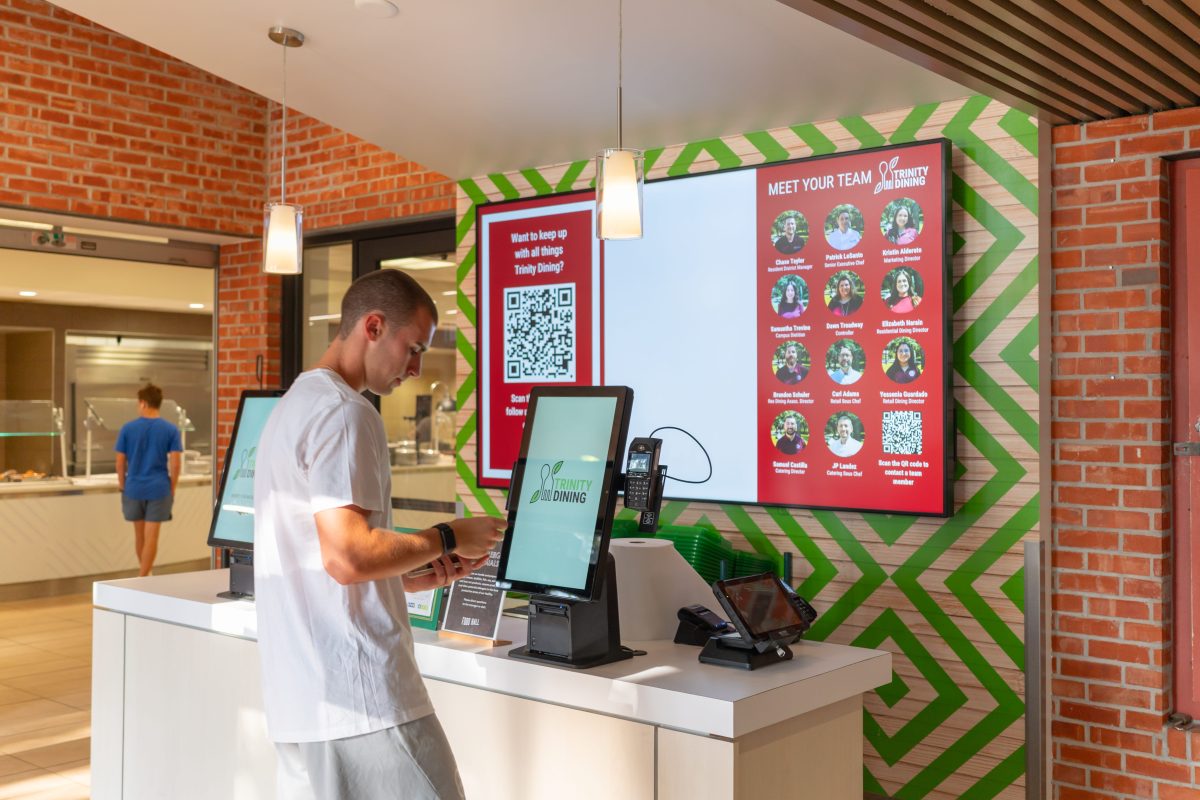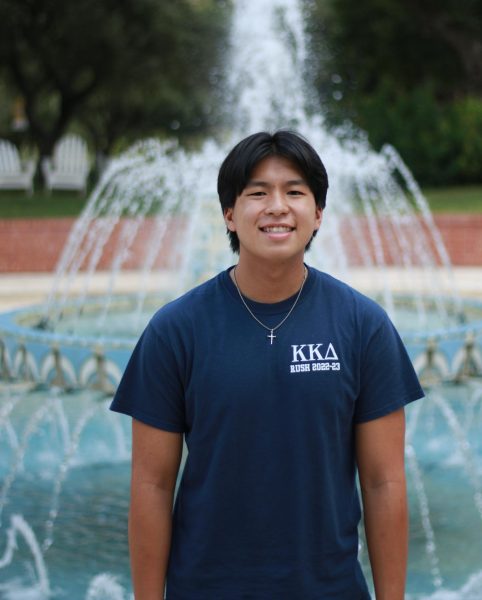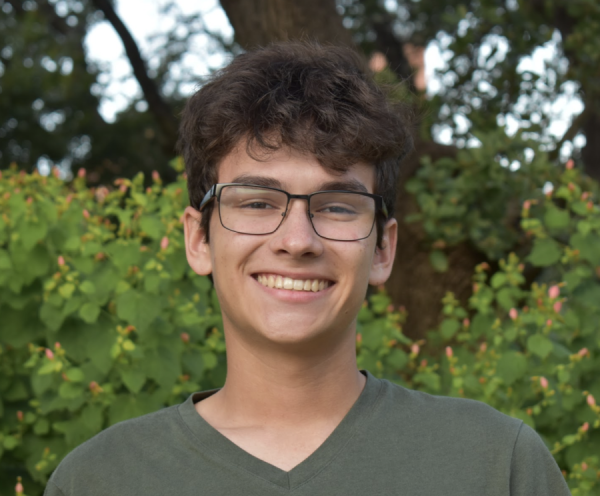The incoming reviews of Chartwells have been largely favorable, allowing Trinity’s new dining provider to focus on long-term goals of being eco-friendly and accommodating. Despite plans for Chartwells to have a soft launch at Trinity before the school year officially started, construction delays postponed any opportunity for this introduction. Nevertheless, the dining provider worked through the situation, overcoming initial technological slowdowns when serving the student body through the first weeks of the school year.
Chase Taylor, resident district manager of Chartwells, oversaw the transition processes for food operations on Trinity’s campus. The technological changes of self-service kiosks and new displays in dining services were all tested beforehand, but they were not fully tested in a student environment.
“We didn’t get a chance to have a soft open in prior weeks due to the renovation delays that we had with the construction going on campus,” Taylor said. “This is the first week of classes [and] kind of [what] we’re using as a soft open, even though we’re feeding 2,000 people in the dining hall and we’re feeding 1,000 people … in the student center.”
As the year goes on, Chartwells expects any complications to be smoothed out, allowing them to focus more on their sustainability goals. Alongside the aesthetic changes in locations such as Mabee Dining Hall, many additional developments are planned and in progress already.
At least 50% of the products sourced from vendors are local or sustainably sourced, with some coming from Trinity’s community garden. Furthermore, Chartwells aims to cut down on waste as a whole, working to eliminate plastic and paper waste while partnering with an outside company to turn food waste into compost for the local garden.
Another change at Mabee comes in the form of OZZI to-go boxes. These green boxes will be available for purchase and can be utilized by a student throughout their whole enrollment at Trinity. When students finish using their OZZI box, they can turn it in for a carabiner, which they can redeem later for a clean OZZI box.
With all of the changes to Mabee, the positive feedback on new food options have been encouraging for those within Chartwells. Patrick LeSanto, senior executive chef with Chartwells at Trinity University, has listened to as many students as possible and heard good reviews.
“Some juniors and seniors … made comments about how busy Mabee was, and how many people were in Mabee and just how much of a difference it was from just the community aspect, people sitting together enjoying food,” LeSanto said. “That, to us, is a huge win. That’s what we want.”
Some returning students have expressed a positive sentiment about the changes Chartwells has implemented. Callie Adams, sophomore English major, has personally benefited from the ways that Chartwells serves their food in Mabee.
“I really like that they have everything labeled,” Adams said. “Before, I could never really tell what I could eat because I’m gluten-free. And now it’s like I go up to the table, and I know exactly what I can eat.”
As Chartwells becomes fully integrated into the Trinity community, they will be able to host future events alongside their normal dining offerings. Some of these events are already slated for the coming weeks, with a grand opening planned for Sept. 14 and chef appreciation week from Sept. 10-16. These events will be filled with sliders, sushi and other specialty foods. Chartwells also plans to have chef cookoffs, where students can vote through social media on the best dishes, allowing them to become future menu staples.
Above all else, the Chartwells transition team looks to be focused and adaptive to the needs of students.
Christina Castillo, liaison for the Trinity dining committee with a faculty perspective, expressed how Chartwells hopes to work with the student body going forward.
“One of the big highlights of Trinity dining during the transition was if students don’t like something and we hear it, changes can be made,” Castillo said. “I think that was a struggle in the past where changes didn’t happen very often. And if they did, nobody really knew about it. So we really want to hear what students have to say, we want to listen to the community and we have the flexibility to pivot as needed.”









